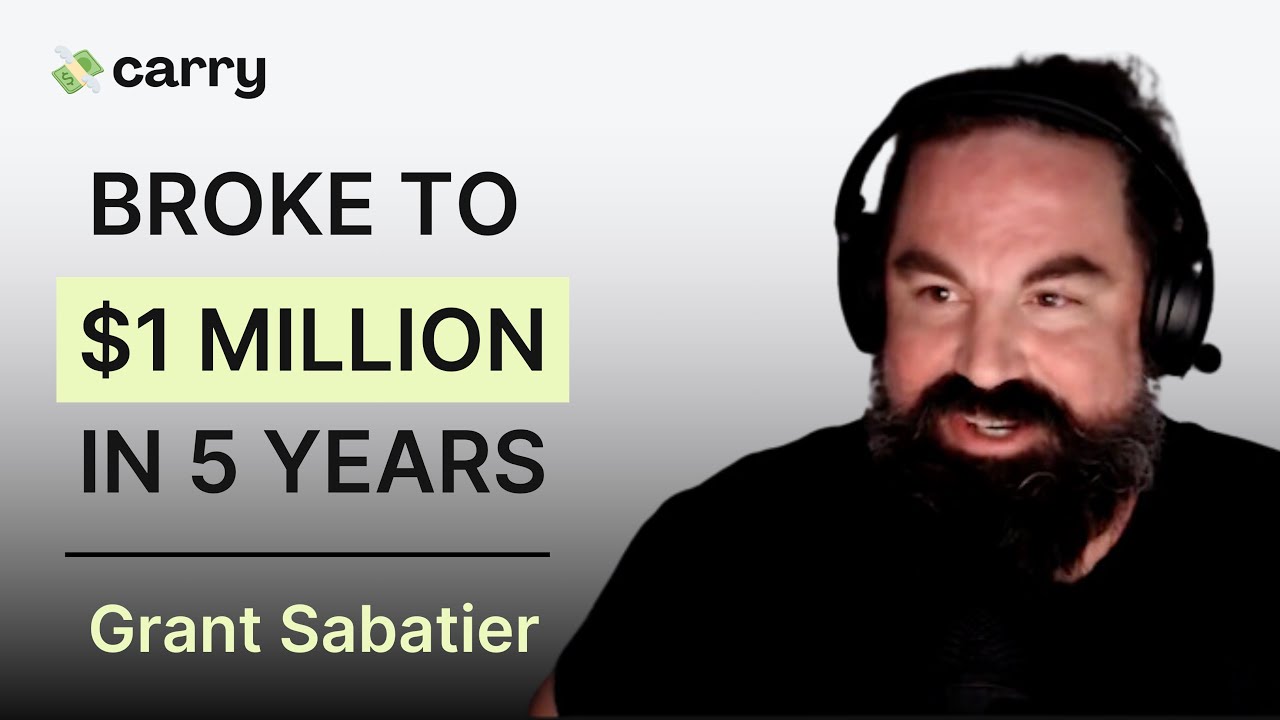Become A Crorepati Before 35 | Full Breakdown
Summary
TLDRIn this insightful discussion, the CEO of Indd Money, a company valued at 5,000 crores, shares his perspective on financial independence and wealth creation. He explains that founders typically don't make money through salary but through equity and ESOPs, highlighting the potential for significant wealth creation with the right company and investment strategy. The conversation delves into the challenges and opportunities of starting a business, the importance of choosing the right industry, and the CEO's personal investment philosophy, emphasizing diversification across Indian and global equities, as well as real estate and angel investing.
Takeaways
- 💼 The founder of a startup typically does not make money through salary but rather through equity and ESOPs (Employee Stock Ownership Plans).
- 📈 The value of a startup is not solely determined by its current profitability, but also by its potential for growth and the value of its equity.
- 💹 Founders can monetize their investments through mergers and acquisitions or by going public with an Initial Public Offering (IPO).
- 🤔 A common perception is that only a small percentage of startups, around 2%, are successful enough to provide significant financial returns to founders and early employees.
- 💼 Employees can benefit from joining startups by negotiating for ESOPs, which can potentially provide substantial wealth if the company succeeds.
- 💰 The speaker suggests that achieving financial independence through a salary alone is difficult, emphasizing the importance of equity and investments.
- 🏦 The speaker is bullish on fintech, Htech (health tech), and enterprise/SaaS tech as industries with potential for growth and wealth creation.
- 💡 The concept of age and experience is becoming less relevant in the business world, with younger individuals capable of outperforming those with more traditional experience.
- 💸 Having a financial corpus of 4 to 5 crores can provide a safety net for aspiring entrepreneurs, allowing them to take risks with starting their own companies.
- 🏦 The speaker's personal investment strategy includes a significant allocation to equities, both domestic and global, with a smaller percentage in non-equity assets like debt and real estate.
- 🚀 The biggest risk the speaker took was leaving a high-paying, secure position at Google to start his own company, which has been a defining moment in his journey to success.
Q & A
What is the definition of financial independence according to the CEO of Indd Money?
-Financial independence is defined as not needing to rely on a monthly cash flow to meet one's financial needs, and having the ability to extend wealth to future generations.
How does a startup founder typically make money?
-A startup founder typically makes money not through salary, but through equity and ESOPs. They can monetize by selling the company through mergers and acquisitions or by going public through an IPO.
What is the success rate for startups to have an IPO or get acquired in India?
-The success rate is approximately 2%, as only a small fraction of startups manage to have an IPO or get acquired.
How can employees make money in startups if not through a high salary?
-Employees can make money in startups by negotiating for more ESOPs, which can become valuable if the company grows and has a successful exit strategy.
What advice does the CEO of Indd Money give to someone starting their career?
-The CEO suggests that young professionals should consider joining startups, especially in fintech, hitech, and enterprise SaaS sectors, to derive value from their ESOPs.
What is the significance of ESOPs in wealth creation for employees?
-ESOPs can lead to significant wealth creation for employees, as they can potentially become worth much more than their initial value if the company they are invested in performs well.
How does the CEO of Indd Money view the concept of age and experience in the current job market?
-The CEO believes that the concept of age and experience is becoming less relevant, as he has encountered many individuals with extensive experience who have not kept up with the changing world.
What was the biggest risk the CEO of Indd Money took in his life?
-The biggest risk he took was leaving his highly remunerative position as the country head of Google to start his own company.
What is the CEO of Indd Money's investment strategy?
-His investment strategy involves a 70/30 split between equity and non-equity investments, with a focus on diversification across Indian and global equities, and a small percentage in real estate and angel investing.
What is the CEO of Indd Money's view on real estate as an investment?
-He considers real estate to be an inefficient asset class and only a small percentage of his portfolio is allocated to it, excluding his personal residence.
Does the CEO of Indd Money plan for an IPO for his company?
-Yes, he expresses a desire to go public, not just to sell the asset but also to enable retail investors to create value from the company.
Outlines

このセクションは有料ユーザー限定です。 アクセスするには、アップグレードをお願いします。
今すぐアップグレードMindmap

このセクションは有料ユーザー限定です。 アクセスするには、アップグレードをお願いします。
今すぐアップグレードKeywords

このセクションは有料ユーザー限定です。 アクセスするには、アップグレードをお願いします。
今すぐアップグレードHighlights

このセクションは有料ユーザー限定です。 アクセスするには、アップグレードをお願いします。
今すぐアップグレードTranscripts

このセクションは有料ユーザー限定です。 アクセスするには、アップグレードをお願いします。
今すぐアップグレード関連動画をさらに表示

Broke to Saving $1 Million in 5 Years: Achieving Financial Freedom with Grant Sabatier

Abhishek Kapoor, Group CEO, Puravankara Limited on ET NOW Swadesh

SAYA SALAH, SAYA KALAH: Thowilz MentorBaik Jadi Value Investor Usai Cut Loss Bertubi |Hidden Masters

What Should I Do with This $200,000 to Become a Millionaire Soon?

如何摆脱无意义的工作?|Multiple-Fire系列

Sapphire Foods' Growth Journey: Rising Demand Dynamics & Market Response, Sanjay Purohit Insights
5.0 / 5 (0 votes)
